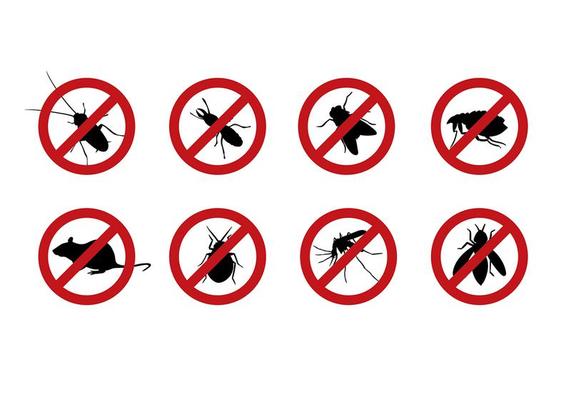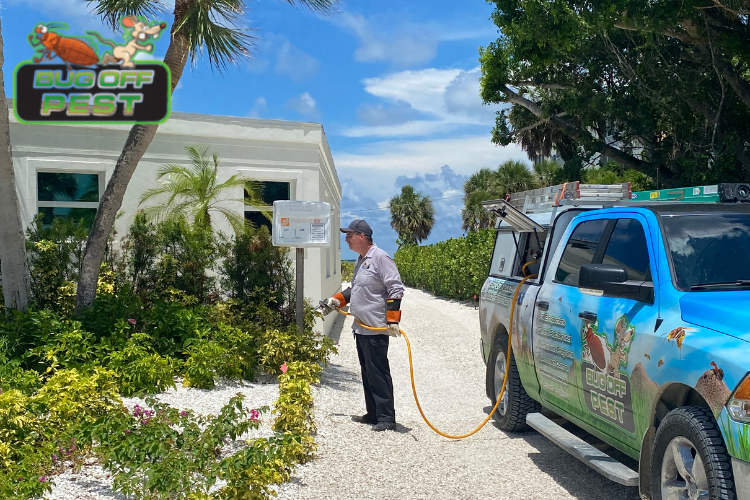Top Benefits of Termite Treatment Port Charlotte for Preventative Protection
Top Benefits of Termite Treatment Port Charlotte for Preventative Protection
Blog Article
Reveal the Relevance of Pest Control in Keeping a Healthy And Balanced Atmosphere and Treatment Strategies

The Function of Pests in Communities
Bugs, often checked out exclusively as problems, play a complex function in communities that is vital for maintaining eco-friendly balance. They add considerably to different ecological processes, including pollination, vitamins and mineral cycling, and insect control. For example, many insect types, such as bees and butterflies, are essential pollinators for a vast array of plants, which consequently sustains biodiversity and food manufacturing.
Additionally, insects work as target for various killers, creating a crucial web link in food webs. This interdependence makes certain the survival of different species and helps control populaces within environments (Termite treatment Port Charlotte). Additionally, decomposer pests, such as specific beetles and fungi, contribute in breaking down raw material, thus improving dirt and helping with vitamins and mineral recycling.
Alternatively, while bugs can be useful, their overpopulation or intrusion right into non-native atmospheres may interfere with these eco-friendly features. This intricacy underscores the relevance of recognizing insect dynamics, as effective parasite management methods should take into consideration both their ecological duties and possible influence on human activities. Stabilizing pest visibility while decreasing injury is important for preserving the integrity of environments and ensuring farming efficiency.
Health Dangers Connected With Insects
The visibility of pests in various settings expands past their environmental functions, as they also posture considerable wellness risks to human beings and animals. Many pests, consisting of bloodsuckers, rats, and bugs, are service providers of diseases that can have severe wellness implications. As an example, rats are known to transfer hantavirus and leptospirosis, both of which can lead to serious breathing and renal issues, respectively.
Insects such as ticks and mosquitoes are infamous for spreading vector-borne diseases like malaria, dengue high temperature, and Lyme disease. These diseases can cause high morbidity and death prices, particularly in vulnerable populations. Additionally, bugs like bedbugs and cockroaches can exacerbate allergies and bronchial asthma, contributing to respiratory system troubles in individuals, particularly those with pre-existing conditions.
Moreover, the existence of pests can cause psychological stress and discomfort, affecting total health. Contamination of food and surfaces by parasite droppings and continues to be can cause foodborne diseases, highlighting the importance of preserving sanitary conditions. Consequently, understanding the health dangers linked with parasites is vital in recognizing the need of reliable bug management strategies to secure animal and human wellness.

Benefits of Efficient Parasite Control
Reliable pest control is necessary for keeping a healthy and balanced and risk-free environment, as it consistently mitigates the many dangers related to bug infestations. Among the primary benefits of effective pest monitoring is the reduction of carcinogen. Pests such as rats, roaches, and mosquitoes are vectors for diseases that can impact both pet dogs and people. By regulating these populaces, the chance of illness transmission is considerably reduced.
Furthermore, reliable pest control safeguards home and structures from damage. Numerous bugs, like termites and woodworker ants, can create extensive architectural damages that might require pricey fixings. By proactively managing these services, invasions and homeowners can safeguard their financial investments.
An additional considerable advantage is the improvement of total lifestyle. A pest-free environment contributes to mental wellness and reduces tension associated with infestations. Furthermore, reliable bug control promotes a more secure environment for children and pets, ensuring that homes remain havens cost-free from disease-causing microorganisms and hazardous chemicals.
Common Bug Control Techniques

In the realm of insect management, different techniques are employed to combat invasions efficiently. These methods can be extensively categorized into three primary techniques: social, mechanical, and chemical controls.
Cultural control includes modifying techniques to lower parasite facility, recreation, and survival. This might include crop rotation, correct hygiene, and habitat adjustment, which visit this site right here jointly create a setting much less helpful to pest expansion.
Mechanical control utilizes physical methods to remove pests (Termite treatment Port Charlotte). Techniques such as obstacles, traps, and vacuum cleaners are typically used to directly get rid of insects from an area. This approach is particularly efficient for taking care of rodents and pests without using harmful chemicals
Chemical control includes the application of pesticides to manage bugs. These materials can be classified right into herbicides, fungicides, and pesticides, each targeting certain types of insects. It is vital to make use of these chemicals judiciously, adhering to security standards and regulations to lessen possible harm to non-target species and the environment.
Each insect control technique has its benefits and constraints, and frequently, an integrated approach combining numerous techniques yields the very best lead to maintaining a pest-free environment.
Lasting Pest Monitoring Practices
Lasting parasite management methods incorporate a series of approaches created to reduce ecological impact while effectively controlling bug populations. These techniques focus on using eco-friendly techniques over chemical pesticides, therefore minimizing the danger of harm to non-target species, consisting of advantageous insects, wildlife, and humans.
Integrated Insect Administration (IPM) is a foundation of lasting techniques, integrating biological, social, mechanical, and chemical strategies to handle insects. For instance, biological control includes presenting all-natural predators or parasites to subdue insect populations. Social techniques, such as plant turning and polyculture, interfere with pest life process and enhance ecological community strength.
Mechanical approaches, such as barriers or traps, can efficiently avoid parasite access without chemical treatment. Furthermore, maintaining healthy and balanced ecosystems via appropriate dirt monitoring, plant health and wellness, and biodiversity can normally official website alleviate pest concerns.
Education and recognition are essential elements, empowering neighborhoods and people to recognize parasite threats early and implement safety nets. Termite treatment Port Charlotte. By promoting an alternative approach that balances pest control with eco-friendly stability, sustainable insect management practices not just protect plants and frameworks yet also add to a much healthier setting for future generations
Verdict

Understanding the health and wellness threats linked with parasites is crucial in acknowledging the requirement of reliable bug monitoring techniques to secure animal and human health.
Effective insect control is necessary for keeping a healthy and risk-free setting, as it constantly reduces the countless risks associated with bug infestations.Integrated Parasite Management you can try this out (IPM) is a cornerstone of lasting methods, combining biological, social, mechanical, and chemical tactics to manage bugs. By understanding the duty of parasites, recognizing connected wellness risks, and employing diverse therapy methods, a lasting strategy to pest management can be achieved. Integrated Insect Monitoring (IPM) highlights an all natural approach that reduces harm to advantageous organisms while efficiently controlling pest populations.
Report this page